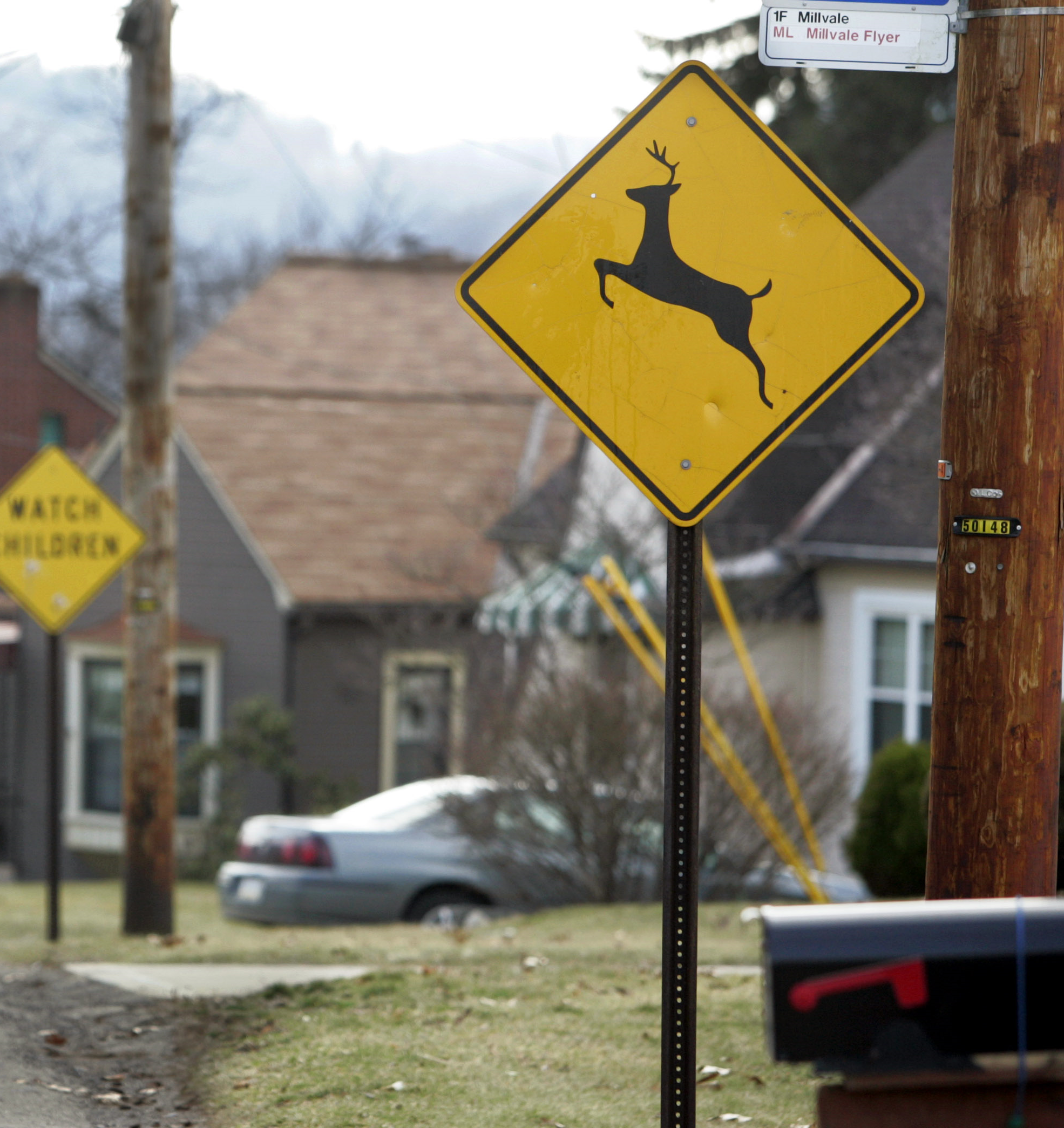More Stories

Authorities across the tri-state area are reminding drivers to be extra vigilant on roadways this fall as mating season for deer and moose gets underway and daylight hours decrease.
In 2020, an analysis by AAA Northeast found 33,956 animal crashes in New York state.
The National Highway Traffic Safety Administration estimates that damage caused by deer accidents results in over $1 billion in annual insured losses.
Awareness becomes even more important in the fall when sunset is earlier. Many commutes align with the periods when deer are most active, and lighting conditions may be the most difficult for driving. Reduced lighting as well as sun glare can make it very difficult for drivers to see deer that are about to cross the road, according to the New Jersey Department of Environmental Protection.
Here are some precautions to help you avoid an animal collision:
1. SLOW DOWN
Drivers should reduce speed, especially at night, and watch for their presence on or near the highway. Use high beams when possible.
2. USE CAUTION
Use caution when driving at dawn or dusk and scan roads and roadsides ahead.
3. SEAT BELTS
Be sure all vehicle occupants wear seat belts and children are properly restrained in child safety seats.
4. APPROACHING ANIMALS
Slow down when approaching deer or moose standing near the roadside, as they may suddenly bolt into the road. If the deer is in the road and doesn't move, wait for the deer to cross and the road is clear. Do not try to drive around the deer.
5. GROUPS
Some animals travel in pairs or groups, so if spotted crossing the road, slow down and be alert that others may follow.
6. SIGNAL
Briefly use flashers or a headlight signal to warn approaching drivers when deer or moose are spotted in or near the highway.
7. CROSSING AREAS
Be especially alert and use caution when traveling through frequent deer or moose crossing areas, which are usually marked with "leaping stag" or moose signs.
8. DEVICES
Do not rely on devices, such as deer whistles, extra lights or reflectors, to deter deer.
9. MOTORCYCLISTS
Motorcyclists should be especially alert for deer as motorcycle-deer collisions have a higher fatality rate.
10. DO NOT SWERVE
If a deer does run in front of your vehicle, brake firmly but do not swerve. Swerving can cause a vehicle-to-vehicle collision or cause the vehicle to strike a pedestrian or object, such as a tree or utility pole.
11. DON'T TAILGATE
Don't tailgate. The driver ahead might have to stop suddenly to avoid colliding with a deer.
12. REPORT COLLISIONS
Report any deer-vehicle collision to a local law enforcement agency immediately.

More from News 12
1:52

Snow this morning, then a blast of cold in the Hudson Valley

Israeli strikes rock Tehran as Iran's counterattacks widen after the killing of the supreme leader
1:43

'There's always a conflict no matter who it is.' Hudson Valley residents express varied opinions in wake of U.S.-Israeli joint military attack on Iran
1:44

Hudson Valley elected officials, law enforcement agencies urge vigilance in aftermath of U.S.-Israeli military strikes in Iran
1:39

Year of the Fire Horse: Hudson River Museum rings in Lunar New Year
0:29
